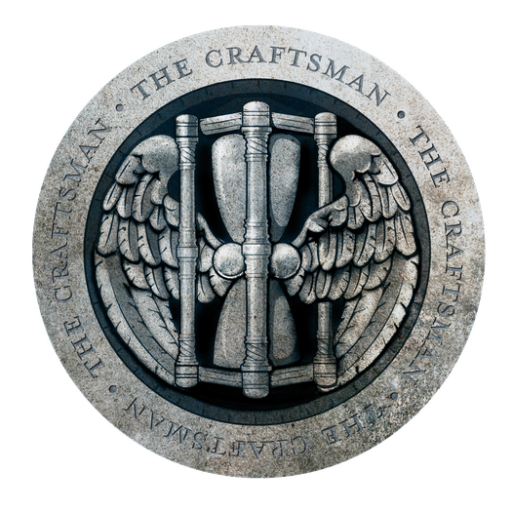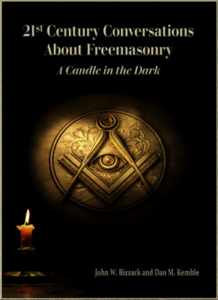In 1709, a proverb written by English poet and satirist, Alexander Pope, summarizes what many earnest-minded Masons, leaders in the Fraternity, and those we consider the most illuminated Masonic scholars have cautioned the Fraternity about since at least the early 1800s. Once the academic world began to pay attention to the phenomenon of Freemasonry as a part of social history around the mid-20th century, they, too, joined the choir. Pope’s proverb has become the troubling truth in our Fraternity, which has been so steadily expressed that it is practically qualified as a Landmark. He wrote, “A little learning is a dangerous thing.”
Read MoreTwo and half years after the end of the Civil War the Southern economic market remained bankrupt. Reconstruction of the South (1865-77) was in its infant stage. Redressing the inequities of slavery and its political, social, and economic legacy was an extremely slow process, not to mention the efforts to solve the problems arising from the readmission to the Union the eleven states that had seceded.
Read MoreIn 1820, Lexington, Kentucky was one of the largest and wealthiest towns west of the Allegheny Mountains. So cultured was its lifestyle that the city gained the nickname, “the Athens of the West.” The exceptionally warm temperatures and rainfall in the spring of 1833 left large pools of standing water in the downtown area of the community that did not yet have a sufficient sanitary water supply or run off disposal system. The town’s drinking water was soon contaminated. A brief but devastating cholera epidemic ensued.
Read MoreMasonic Perspectives is a project created by Past Masters John W. Bizzack, Ph.D. and Dan M. Kemble intended to bring the writings about controversial topics of the past in American Freemasonry and provide readers a second look and contemporary perspective on the topics to serve as a catalyst for further discussion. This project is a joint venture of Lexington Lodge No. 1, The Rubicon Masonic Society, and William O. Ware Lodge of Research, Covington, Kentucky.
Read MoreIn December 1943 the last major offensive of World War II by the German Army took place in southern Belgium near the town of Bastogne. Twenty-five German Divisions made up of 200,000 soldiers and supported by nearly 1,000 heavy tanks, executed a surprise attack on Allied Forces. The battlefield became a seventy-five-mile stretch thick forest held by four inexperienced and battle-worn American divisions stationed there for rest and seasoning. The Germans broke through the American frontlines surrounding most of an infantry division, seizing key crossroads, and advancing their spearheads toward the Meuse River. This created a bulge in the line established by the Allies, thus giving history the name of what was to follow the Battle of the Bulge.
Read MoreBy the time the first lodges in America had been warranted and formed, organized British Freemasonry had been in existence for no more than fifteen years. American Freemasonry did not merely take over from where the grand lodges of England, and later the grand lodges of Scotland, and Ireland left off. Freemasonry in the United States is a child of the Revolution—several generations removed from a more mature British society of the time that influenced the shape of and initial organization of Freemasonry in England. In the 1730s when Freemasonry began to appear in the colonies, it collided with local cultures and began transforming what was created in Britain into a different kind of system influenced by yet another set of cultural stimuli.
Read MoreIf you sense there is much less rigorous analysis about so many things today, trust your senses. We skim a lot. And details surrounding complicated problems get in the way of skimmers. We do not seem to have a society-wide interest in engaging in historical thinking these days, even though such thinking offers the opportunity to think and reason in more sophisticated ways. Few seem to devote much time or demonstrate personal inspiration to mine truth from the quicksand of inference and innuendo in which our technology engulfs us. Notwithstanding the positives from the fact that we have a repository of the world’s information at our fingertips more than at any time in history, the Internet gives millions of people the opportunity to pioneer, hone, and to largely advance their skimming skills.
Read MoreWhen we hear someone referred to as a “maverick” we might first think of the American Western dramatic television series with comedic overtones that aired from 1957-1962, or the 1996 American Western comedy film based on the same story line. Some may know the word because it is the name of a professional basketball team based in Dallas, a hockey team in New York, the call sign of a fighter pilot in a popular 1986 film, or the name of the model of a 1970 Ford automobile. The meaning of many words in our language may change over time with popular usage and slang. The evolution of the meaning for words and even phrases is known as semantic change or drift. That semantic drift gives us several meanings for maverick.
Read MoreScottish philosopher and essayist Thomas Carlyle gave a series of lectures on heroism in 1840, and later published his work under the title of, On Heroes, Hero-Worship, and The Heroic in History. He argued that the actions of the “Great Man” play a key role in history, claiming that “the history of the world is but the biography of great men.” His book led to what is called The Great Man Theory. He believed heroes shape history through both their personal attributes and divine inspiration. According to Carlyle, history is influenced by extraordinary leaders. This ability to lead is something with which certain people are simply born, Carlyle believed, and not something that could be developed.
Read MoreIn The Canker Worm On the Rose – The Story of the Struggle in Kentucky From 1800-2020 to Develop a Consistent Approach in the Observance of Freemasonry, John W. Bizzack, Ph.D., Past Master of Lexington Lodge No. 1, traces the explosive growth of the Grand Lodge of Kentucky and explores the ensuing issues that the Grand Lodge, and all of Kentucky Freemasonry, faced as a result of unplanned and unrestrained growth. Such a study is not necessarily new. Other Masonic writers have addressed similar aspects of this subject at different times. What is new about Worshipful Brother Bizzack’s work, however, is that he allows the story of Kentucky Freemasonry to be narrated by those who actually made it.
Read More




